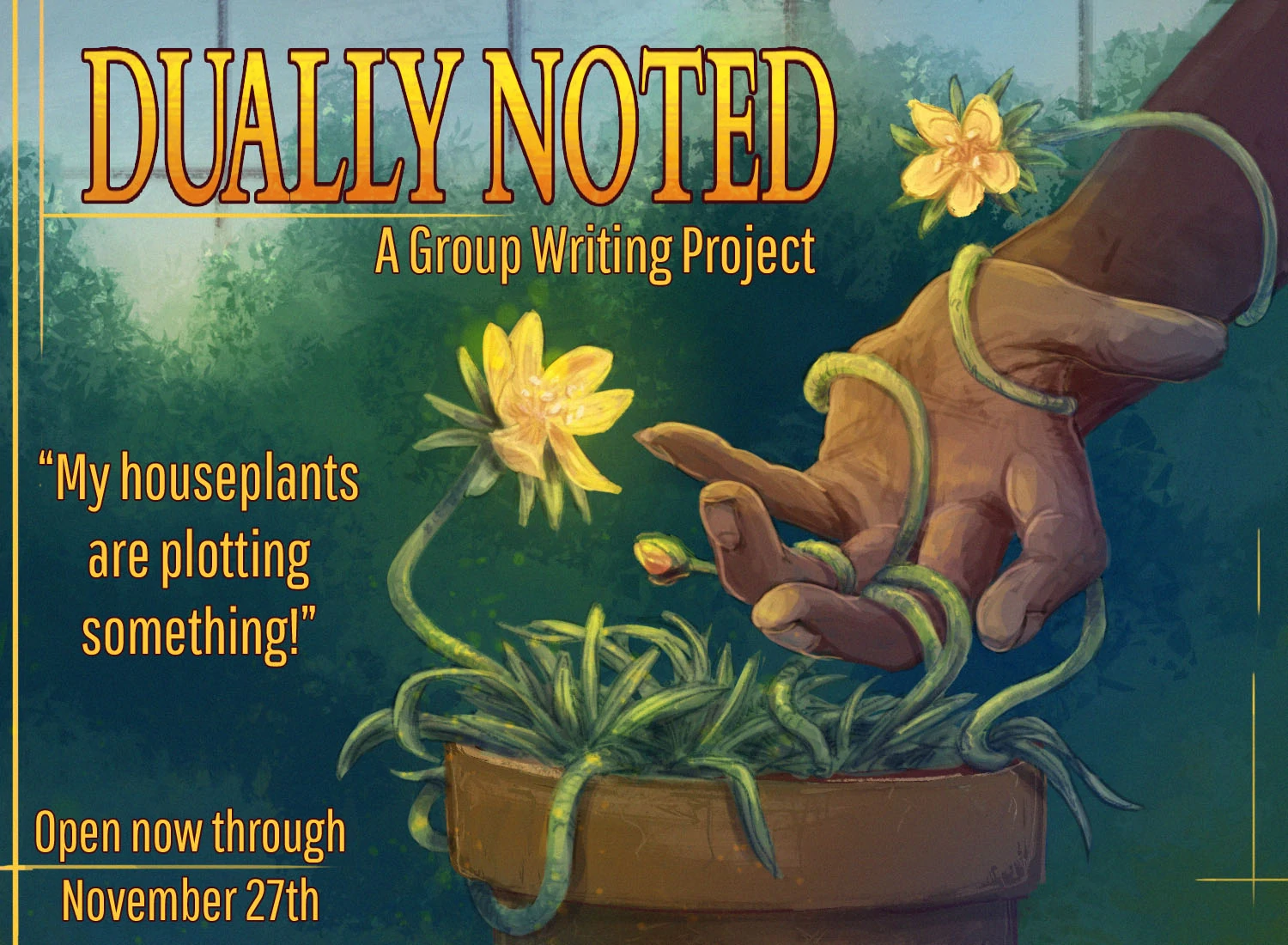
The Pothos Breakup
Words By Karissa Venne, Art By Hailey Renee
My houseplants are plotting something! I can tell by the way their stems reach toward each other, as if bending over to whisper a secret. Their leaves huddle together. Their pots inch closer and closer.
I’ve never been a good plant mother. I ping-pong from drenching them in direct sunlight to abandoning them in corners dark with shade. Their leaves droop and I stop watering them for weeks. Their roots rot and I douse them with the tap. I never know what they need.
It’s September in New England, and the windowsill they’re crouched on is arctic compared to the hot greenhouse summer. I’m drinking tea cross-legged on my kitchen counter, watching them—the perfect stakeout. The pothos is bright, its leaves draped on the sill. The spider plant is fanned out and proud. The echeveria is squat, contemplative.
They are still, but I know they’re up to something.
My girlfriend is at a conference and after a six-hour stakeout, I call her.
“They don’t look right,” I say. “They’re more alive than they were before.”
“That’s what happens when you water them,” she says. I can hear her chewing something crunchy. Pretzels maybe; she always loved pretzels.
“They’re communicating somehow, I’m sure of it.”
“You really shouldn’t anthropomorphize the plants.”
“That’s not what I’m doing. You never listen to me.”
“I always listen, even when I shouldn’t. Have you called your therapist?”
I hang up on her.
The next day, their leaves are brighter, their stems straighter, and the echeveria has sprouted tiny red flowers, small bells reaching toward me.
I avoid the kitchen altogether. Refill my teacup with the bathroom tap turned as hot as it can go, steam rising. My tea bag is old, the taste of its leaves tepid and light on my tongue, like a whisper of what it used to be.
By nightfall, I can’t stand the taste of plain, hot water anymore. I sneak to the kitchen to scavenge a fresh tea bag, leaving my mug on the counter, spotting the plants only in my periphery, tall shadows in the dark. Satchel in hand, I escape the kitchen, refill my mug in the bathroom, and dunk the tea bag in, watching as the water transforms to a light green haze.
I down the entire mug in one gulp, trying to drown the image of my houseplants waiting, skulking, creeping towards me. I swallow and my mouth burns.
My lips swell.
My tongue bloats.
I squint at the bottom of my mug, and there.
Torn green leaves stick to the bottom.
I call my girlfriend.
“Are pothos poisonous?” My tongue feels twice the size. The words sound swollen too, crammed with extra sound.
“What?”
“Can you look it up?”
“Em, we broke up. Two months ago. I know you need to talk sometimes, but this is too much.”
“I’m serious, I think I’ve been poisoned.”
“Then go to the ER. I can’t help you anymore.” She hangs up.